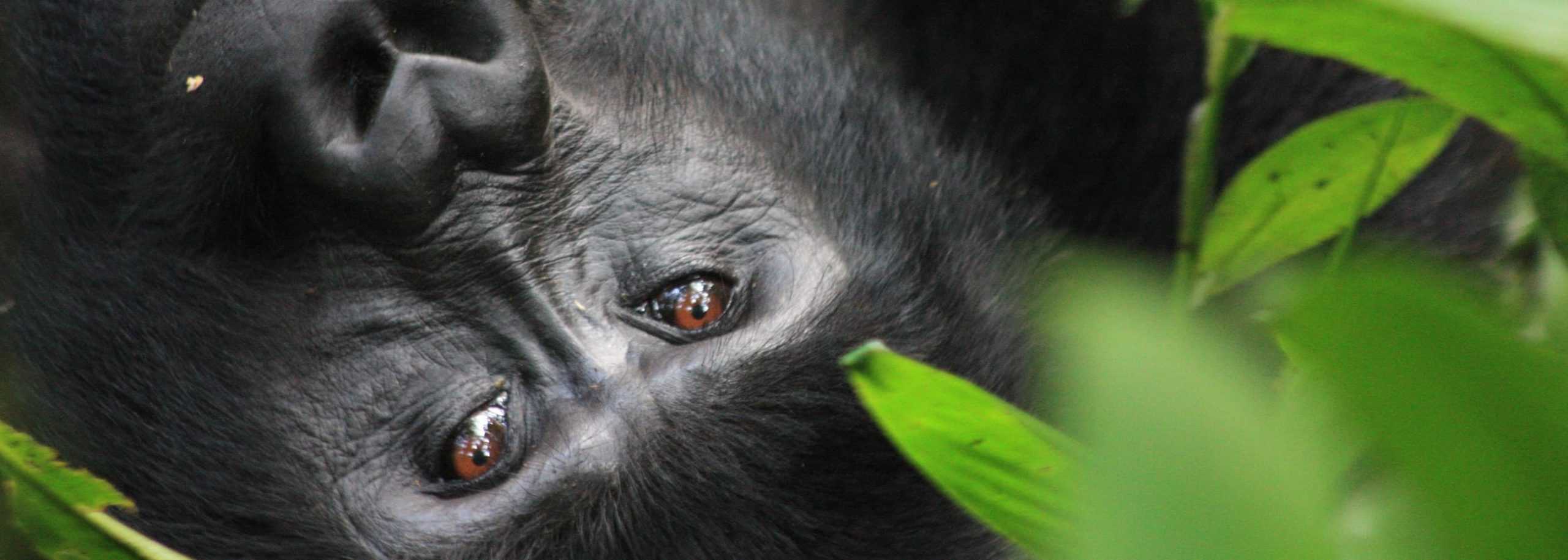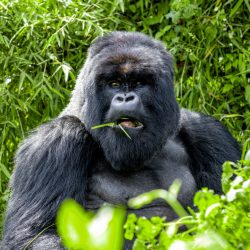Putting Out the Fire
Blog | 29/07/09
Hi everybody! This is Media Programme Officer from IGCP Rwanda.
Saturday, the 18th July I got a call in the morning from a beekeeper telling me that the park was on fire! I didn’t realize what would have been the magnitude at that time. I immediately contacted the park authorities only to be informed that they had just received the information and started mobilizing communities. For me, I thought well this was just a one day matter then we would go back to our normal life especially during the busy time of the year in the Park, tourism high season.
I was very wrong, Saturday evening I got a call from the law enforcement warden rushing back to Musanze from his school in Kibungo; just imagine looking for transport to Musanze at 9:30 PM; thankfully he managed. Sunday lunch time, I was anxious and decided to call him to know the progress whether or not the fire was put off. “ Hehheheh do you know what Media! I have never seen this before, if it continues to spread at this speed it would take 3 weeks to get rid of it!” He told me. What? Then the whole park would be gone!!!!!!!! I exclaimed. The same Sunday, on my way to Musanze from Kigali was checking if I could see the region on fire from the road but couldn’t see a thing. I even tried to call my colleagues but in vain.
Come Monday morning, I decided to go into the field and see for myself what was happening and what IGCP could do to help. I had been informed that some people spent the night there lead by the warden In charge of law enforcement. Thus I passed through town to buy something for the teams such as water, juice, biscuits and chocolates.
On our way, nothing unusual from the tourism area all the way to Cyanika area, which was encouraging; but in Cyanika from the road we could see smoke in different points in the forest. One could easily mix up smoke and cloud. In the village around you couldn’t see any young men; women were cooking for people fighting fire in the forest.
We reached the area where we had to leave the car and walk. There were many tracks offered by local residents to drop local communities and were waiting to carry them back. One SAMU ambulance offered by ministry of Health found us in the parking.
In community land you’d just meet exhausted people coming back from fighting fire. “Hi madam! Are you coming to help us to put out fire?” I was asked by one exhausted and all sooty man. “Yes we need everyone for this work and we will get rid of it today”, he added! “For us we are going to rest a bit and come back in the afternoon to replace our friends; it will end today we will make sure!” He said.
I continued climbing hills, yes I’m talking here about a volcano not a small hill… meeting various people on the way: military, police, communities; everyone had brought anything that they were able to find: panga, hoes, sticks just anything to fight the fire. I finally reached the park edge, exhausted to death and I said to myself that all people who went up to fight fire are brave, climbing all these steep hills and volcano, one needs to be patriotic and conservationist!! The terrain was as well very difficult in some areas where people had to try to extinguish fire in ravines, climbing big hot rocks! People were really selfless in this tedious exercise.
On top there, I met the chief park warden, the executive secretary of Cyanika sector, police commander of Northern province, one hour late we were joined by the vice mayor of Burera District, the governor of Northern Province, even the minister in charge of Natural resources, even the minister came! What’s an encouragement for the teams! The fire on Muhabura was not only local communities/park authorities’ problem, but a national and transboundary problem. The fire had crossed to Uganda and on the other side people from Uganda together with teams from Rwanda were trying to put out fire.
In the meantime one military helicopter flew overhead, monitoring both areas in Rwanda and Uganda, one minute later another one equipped with water pump passed pouring water in area where fire was more raging on Uganda side. They continued the same exercise until late in the evening.
The coordination of all teams and helicopters was amazing!
The community participation was commending but not well organized especially during the night. While discussing with the park warden, we thought of calling organized groups such as volunteers that work with park staff for different conservation activities, buy dry ration for them, so that they could spend the night in the forest putting out fire. That’s what we did and all came.
Tuesday more people came, approximately 4000 people from disaster management center, police, military, Tigistes from Northern Province (genocidaires who do community work instead of being in jail), local communities, park staff.
The teams worked intensively and laboriously in collaboration with Uganda teams and the fire was contained by Wednesday at 5:00PM. Then the teams met to share drinks and boiled maize at one primary school in Cyanika before the tracks dropped them in their villages/camps.
All authorities who talked thank all teams and urged local communities to communicate timely this kind of accidents and prevent themselves from activities that can harm them or/and the park. They encouraged people to demonstrate such commitment for all activities that can lead them and the country to development.
All people were dead on their feet but you could read satisfaction in their eyes.
The cabinet meeting of Wednesday 22nd July saluted as well the perfect collaboration between communities, military and police during this disaster.




